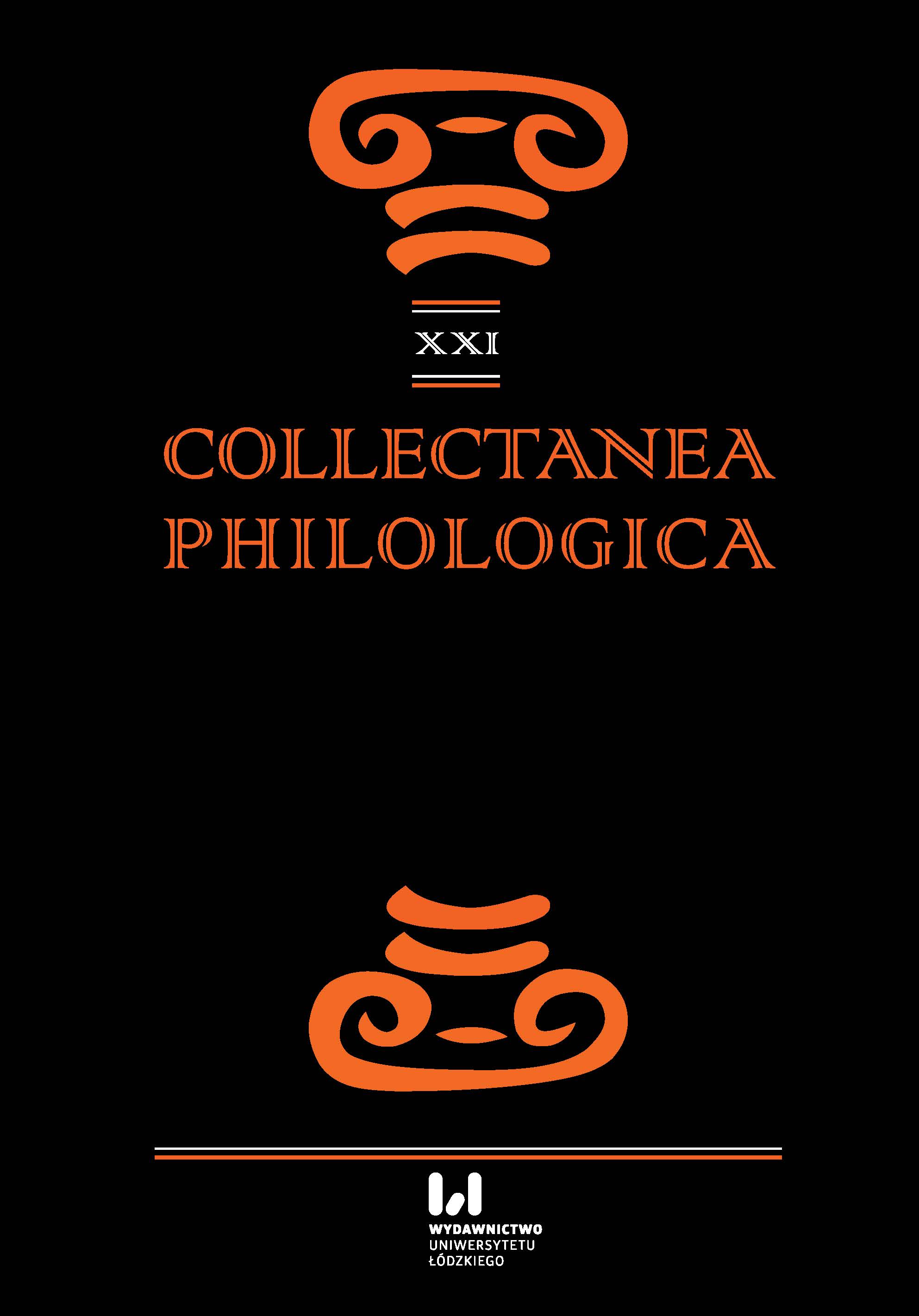Z badań nad pojęciem pamięci – mneme w dramacie greckim. Część I: Mneme w utworach Ajschylosa i Sofoklesa
From the Study on the Concept of Mneme – “Memory” in Greek Drama. Part I: Mneme in Aeschylus’ and Sophocles’ Plays
Author(s): Krzysztof NareckiSubject(s): Greek Literature, Theory of Literature
Published by: Wydawnictwo Uniwersytetu Łódzkiego
Keywords: mneme – memory; semantics; ancient Greek tragedy; Aeschylus; Sophocles
Summary/Abstract: The aim of the study, which is a continuation of this type of research (based on Greek literary sources of the Presocratic era), is to determine the meanings of the concept of mneme – “memory” in the works of Aeschylus and Sophocles, as well as to determine the function it plays in a given place. Linguistic and literary analysis of 12 instances of a noun mneme in Aeschylus (3) and Sophocles (9) shows that this concept reveals hitherto unknown semantic shades. Aeschylus gives mneme a new meaning of “worship” (in Suppliants). He also uses the already known: intellectual “power of memory” and for the first time in the history of Greek literature identifies “memory” with the mother of all muses – Mnemosyne (in Prometheus Bound). More often mneme appears in the works of Sophocles, which results from the functions performed there. After all, the intellectual “power of memory” and “memories” as the effects of its actions allow the characters to: (1) do well (and thus keep the moral order), (2) get to know the truth about ourselves (to recognize our own identity) changing the course of dramatic action as part of the peripeteia (the case of Oedipus), (3) lead (as the driving force) to destruction of heroes (Jocasta, Oedipus), (4) drive the action (as “thought”), (5) serve as a moral compass (in a new semantic shade “attention”, in Oedipus at Colonuss), (6) store a resource (memories) as a deposit in collective memory as a warning for posterity. And finally, for the first time in history, the concept of mneme as a tool of mimesis is used in Oedipus Rex in the new sense: “the ability to (re)create” (inspired by Mnemosyne) or otherwise: “poetic art of reconstruction” of dramatic events. Defined meanings (semantic shades) of mneme can be divided into 2 groups. The first group includes those that take rational value: “power / ability to remember”, “thought”, “attention”), while the other holds the expressive meanings: “worship, honour, commemoration”, “(re)creative, poetic reconstruction”. It seems that the Greek tragedians were aware of the role that mneme can play in their works: whether in the depiction of the characters, or as an element that drives the action, or in recalling, in various ways, the past and its cultivation.
Journal: Collectanea Philologica
- Issue Year: XXI/2018
- Issue No: 1
- Page Range: 5-23
- Page Count: 19
- Language: Polish

